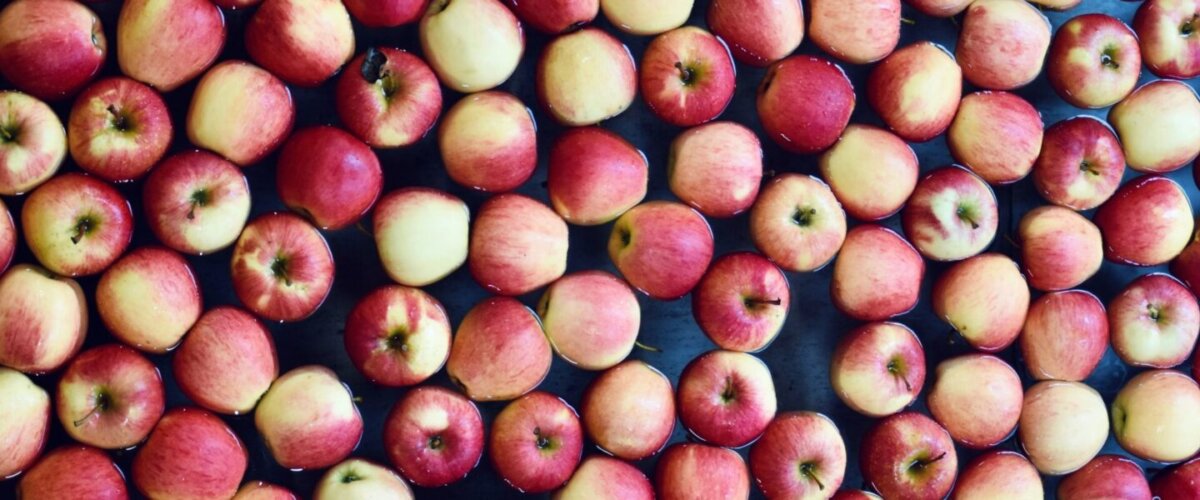
Achieve Higher Food Safety with ISO and FSSC 22000 Certification
International standards set requirements for food safety management systems. Through certification manufacturers, distributors, and catering companies demonstrate compliance with the highest standards of hygiene and safety.
ISO 22000 Certificate for Safe Food
Today, food products constantly cross all borders, customer demands for food safety are increasing, and sustainability issues are here to stay. Therefore, an international standard is needed to guarantee the safety of global food sales, resulting in ISO 22000. The standard is a tool for organizations handling food to identify and prevent health hazards. The system is based on HACCP and leverages the strengths of the well-established ISO 9001 management system model. The aim of the standard, which can be integrated with both ISO 9001 and ISO 14001, is for your company to have well-established control over food safety hazards and to guarantee safe food.
Food safety is fundamental to consumer health. Deficiencies in hygiene and safety in the food chain can have life-threatening consequences. Additionally, spoiled food causes significant economic losses each year. With the ISO 22000 standard, traders and manufacturers ensure high security and quality in their feed and food production and distribution processes.
ISO 22000 establishes a transparent and internationally recognized standard for all actors in the food chain. ISO 22000 aims to guarantee safe products for consumers while increasing customer satisfaction.
The standard combines key elements of food safety, including transparent communication, traceable processes, and HACCP principles. Additionally, pre-requisite programs (PRP) are applied. Standardizing the entire process from producer to consumer aims to ensure that both producers and retailers can quickly respond to any health risks and identify faults in the chain. Organizations already certified under ISO 22000 can also benefit from an FSSC 22000 review.
ISO 22000 was last revised in June 2018, replacing ISO 22000:2015. With the revision, the modern high-level structure (HLS) was introduced, making it easier to integrate ISO 22000 certification into an existing management system. As of June 29, 2021, companies can only be certified according to the latest standard ISO 22000:2018.
The four core areas of the ISO 22000 food safety standard.
ISO 22000 for food safety includes four core areas. These include implementing effective PRPs (Prerequisite Programs), establishing and maintaining a food safety management system (FSMS), organizing internal and external communication, and meeting HACCP requirements. If companies have already implemented a food safety management system, ISO 22000 certification ensures that it continues and is completed in a structured manner. Since the ISO 22000 food safety standard already meets Hazard Analysis and Critical Control Points (HACCP) requirements, companies do not need to have their HACCP concept certified separately.
Who is ISO 22000 certification suitable for?
The international standard ISO 22000 is intended for all companies directly or indirectly involved in food. The size of the company is not crucial. Consequently, ISO 22000 certification is suitable for both small, medium-sized, and large companies and organizations. ISO 22000 certification is suitable for the following companies: • Food manufacturers. • Additive manufacturers. • Logistics companies (storage and transportation). • Companies manufacturing food packaging. • Retail, wholesale, and intermediaries. • Catering companies. • Restaurants. • Commercial kitchens.
The benefits of ISO 22000
- Competitive advantage – Stand out from your competitors with ISO 22000 certification, one of the leading standards in your sector.
- Through certification, the company aims to make continuous improvements regarding communication and processes related to food safety throughout the organization.
- Protect the brand and build trust with your customers by being able to certify high security in production programs and supply chain management.
- ISO 22000 has an updated focus on employee engagement, as it has a significant impact on the food safety culture within the entire organization.
FSSC 22000 Certification for Food and Feed Industry
Management Systems with FSSC 22000 certification, companies in the food and feed industry have the opportunity to have their food safety management system reviewed according to a standard recognized worldwide by the Global Food Safety Initiative (GFSI). The certificate confirms the high quality and safety of food and animal feed.
The FSSC 22000 standard was established by the FSSC 22000 Foundation in the Netherlands. They developed certification together with well-known food manufacturers and retailers, with the aim of increasing product safety and quality in the food and feed industry. FSSC 22000 certification is now recognized by the Global Food Safety Initiative (GFSI). The revisions focus on the management systems of companies in the food and feed industry. The entire value chain is considered, from production to trading in finished products. The standard aims to continuously improve the quality and safety of food and feed products. The FSSC 22000 standard is based on ISO 22000, the international standard for food safety management systems.
Key aspects of FSSC 22000 include:
- Designing and implementing safe products.
- Responsible management.
- Combating food fraud through a management system.
- Regular risk assessments (vulnerability assessments).
Which companies are suitable for FSSC 22000 certification?
The standard considers quality and safety for the entire food and feed chain, from the production of raw materials to the sale of the finished product in retail. Consequently, all companies involved in the value chain can be certified. In practice, companies from the following sectors are certified according to FSSC 22000:
- Agricultural companies.
- Food or feed producers.
- Manufacturers of packaging for food and feed products.
- Companies packaging food and feed products.
- Suppliers of transport and logistics services.
- Catering companies.
- Retailers.
Can be combined with other revisions and certifications Companies already certified according to ISO 22000 can obtain FSSC 22000 certification with considerably less effort. The prerequisite is that the necessary technical and industry-specific requirements are met. FSSC 22000 certification has a similar content to IFS Food or BRCGS Food certification. Companies that have already been audited according to these standards can usually shorten the audit for the FSSC 22000 standard.